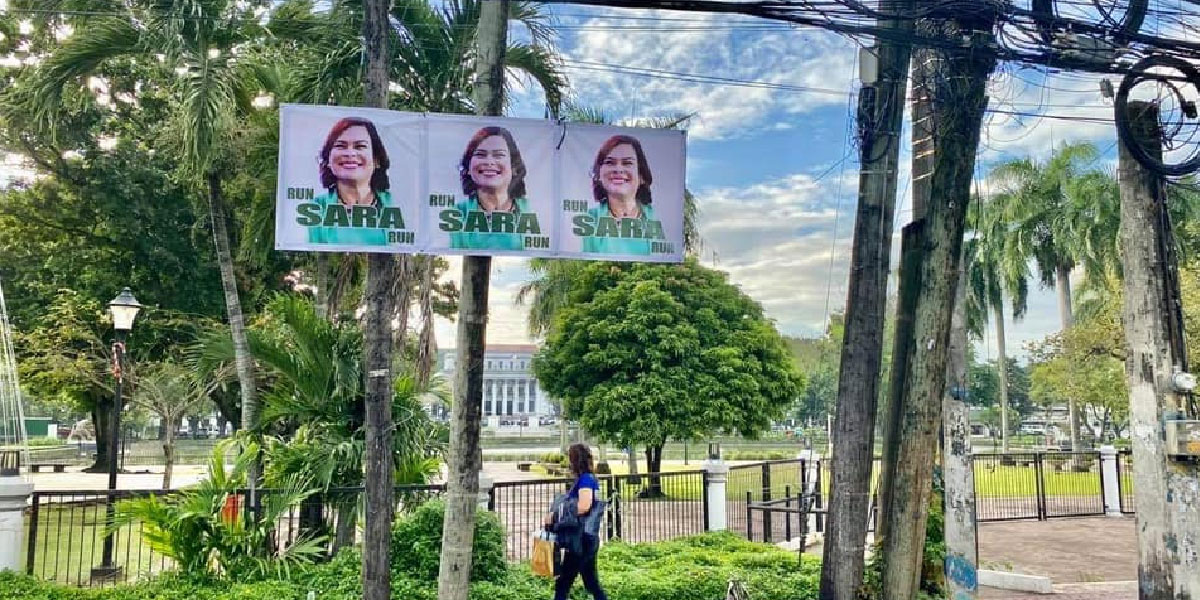
Surigao del Sur Rep. Johnny Pimentel has filed a bill seeking to tag all politicians as “prospective candidates” prohibited from premature campaigning under pain of disqualification from running for or holding office.
Under Pimentel’s House Bill 9656, prospective candidates shall be banned from ill-timed electioneering anytime within 12 months before the campaign period.
The campaign period officially starts 90 days and 45 days before any scheduled elections for national and local positions, respectively.
“In the interest of fair play, our bill seeks to restore premature campaigning as an election offense by clearly defining who may be held liable, and when they may be held liable,” Pimentel said.
Under the bill, the term “prospective candidate” shall refer to any person aspiring for any elective public office, whether or not he or she has declared the intention to run in the scheduled elections and subsequently files a certificate of candidacy (COC).
Under the bill, within 365 days before the start of the campaign period, prospective candidates as well as candidates shall be prohibited from and may be held liable for, the following unlawful and punishable acts:
-Forming organizations, associations, clubs, committees or other groups of persons for the purpose of soliciting votes and/or undertaking any campaign for or against a candidate;
-Holding political caucuses, conferences, meetings, rallies, parades, or other similar assemblies, for the purpose of soliciting votes and/or undertaking any campaign or propaganda for or against a candidate;
-Making speeches, announcements, commentaries, or holding interviews for or against the election of any candidate for public office;
-Publishing or distributing campaign literature or materials designed to support or oppose the election of any candidate; or
-Directly or indirectly soliciting votes, pledges, or support for or against a candidate.
The foregoing acts shall not be considered as premature electioneering or partisan election activity if performed to improve the chances of aspirants to be nominated as candidates of a political party or coalition, or if meant as public expressions or opinions against potential nominees in a forthcoming political convention.
“Under our bill, if a prospective candidate commits any of the prohibited acts and eventually decides to file a COC, he or she may be disqualified from running for or holding public office, or both,” Pimentel said.
“Also under our bill, a person shall be considered as a candidate potentially liable for election offenses upon his or her filing of a COC,” Pimentel said.
At present, a person who has filed his or her COC may be held liable for election offenses only upon the start of the campaign period.
The filing of COCs for all elective positions is scheduled from Oct. 1 to 8 this year, or four months before the Feb. 8, 2022 start of the campaign period for national positions, and five and a half months before the Mar. 25, 2022 start of the campaign period for local positions.
The Omnibus Election Code of 1985 previously prohibited premature electioneering outside the campaign period, and subjected violators to disqualification from candidacy or from holding office.
However, this liability has since been abolished by a 1997 law – Republic Act 8436 – which has blanket provision that “unlawful acts or omissions applicable to a candidate shall take effect only upon the start of the campaign period.”
In the 2009 landmark case of Rosalinda V. Penera vs. the Commission on Elections, the Supreme Court affirmed the purging of premature campaigning as an offense when it ruled that a candidate may be liable for violations only upon the start of the campaign period.




















